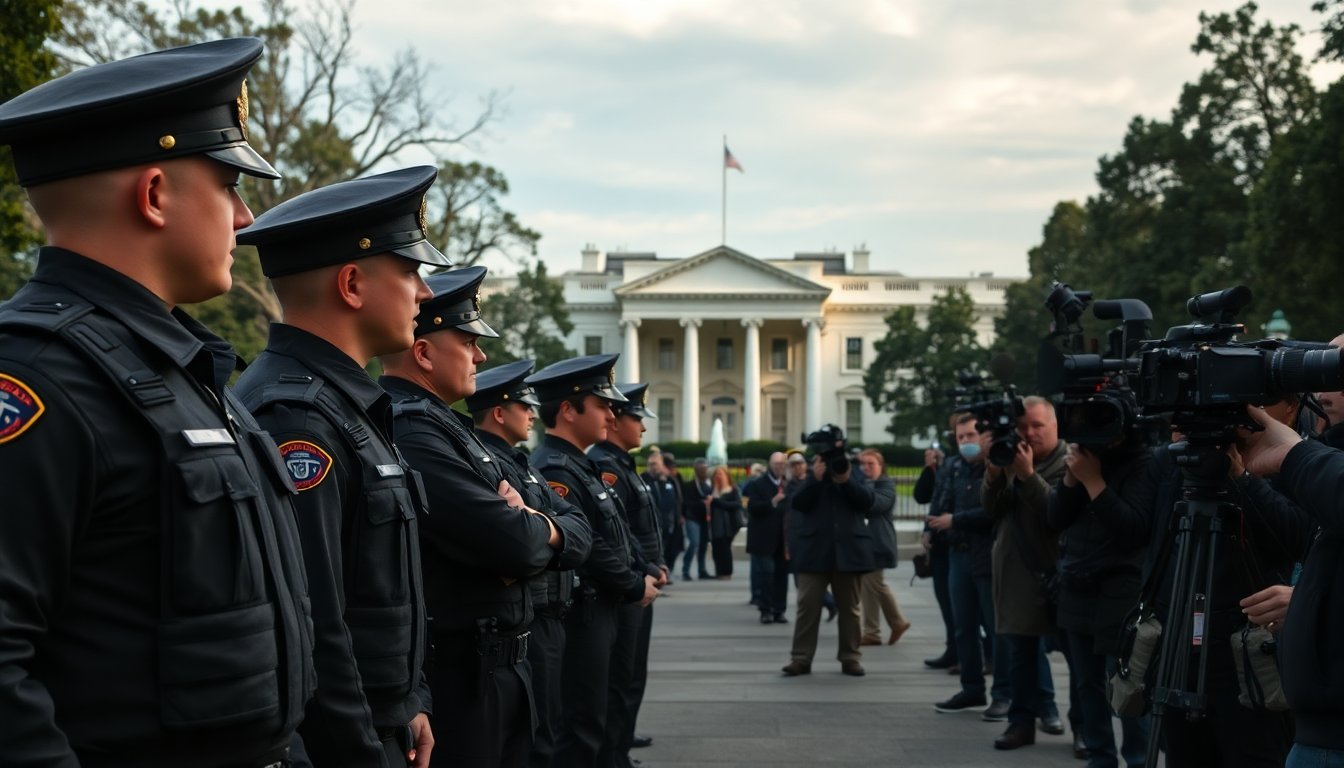Table of Contents
In the wake of a tragic shooting incident involving National Guard members in Washington D.C., media discourse has come under scrutiny, particularly regarding comments made by MS NOW correspondent Ken Dilanian. The shooting left two guardsmen critically injured and prompted an immediate response from the White House, highlighting the tension surrounding media narratives in politically charged environments.
Dilanian’s remarks during a live news segment have since gone viral, drawing ire from officials and the public alike. His comments suggested that some Americans might oppose the presence of the National Guard in urban areas, which many perceived as deeply insensitive given the gravity of the situation.
Immediate backlash from the White House
During the breaking news coverage on MS NOW, Dilanian was asked to discuss the implications of the National Guard’s presence in D.C. Since their deployment earlier in the year, largely endorsed by D.C. Mayor Muriel Bowser, the National Guard has become a familiar sight in the nation’s capital, a fact that Dilanian acknowledged.
However, he quickly shifted the narrative towards the broader political climate, alluding to the controversial roles of uniformed personnel in American cities. He stated, “There are some Americans that might object to that,” a comment many interpreted as an attempt to politicize a violent event. The White House’s rapid response team did not take kindly to Dilanian’s framing.
Official response from the White House
In a pointed tweet, the White House addressed Dilanian directly, stating, “Two heroes were just shot protecting our nation’s capital — and this is your takeaway?” This statement underscored the administration’s discontent with Dilanian’s focus on public opinion rather than the seriousness of the attack itself. Additionally, the tweet condemned the narrative that Democrats have vilified the National Guard, labeling it as demonization.
This incident highlights reactions from political figures and reflects a growing concern about how media coverage can shape public perception in the aftermath of violent events. Critics argue that such commentary can undermine the sacrifices made by service members in protecting the capital.
Criticism from various quarters
As the media landscape continues to evolve, the fallout from Dilanian’s comments has been swift. Various commentators and public figures have chimed in, expressing their outrage. Andrew Kolvet from Turning Point USA remarked on the potential need for MS NOW to rebrand due to the backlash, indicating that the network’s image might be at stake.
Moreover, former ESPN reporter Ed Werder suggested that the focus should instead be placed on the assailant rather than the National Guard’s role in the city. This sentiment reflects a broader frustration with media narratives that divert attention from the actual perpetrators of violence.
Impact on public trust and media responsibility
The incident has reignited discussions regarding media responsibility and the ethical implications of commentary during crises. As the National Guard continues to serve in various capacities across the nation, the portrayal of their role in the media becomes critical. Public trust is at stake when media outlets prioritize sensational commentary over factual reporting.
The shooting incident has also raised questions about the legality of the National Guard’s presence in D.C., with Dilanian referencing an ongoing legal battle surrounding the deployment. While such legal considerations are important, they should not overshadow the immediate human impact of violence against service members.
Navigating sensitive narratives
Dilanian’s remarks during a live news segment have since gone viral, drawing ire from officials and the public alike. His comments suggested that some Americans might oppose the presence of the National Guard in urban areas, which many perceived as deeply insensitive given the gravity of the situation.0
Dilanian’s remarks during a live news segment have since gone viral, drawing ire from officials and the public alike. His comments suggested that some Americans might oppose the presence of the National Guard in urban areas, which many perceived as deeply insensitive given the gravity of the situation.1


